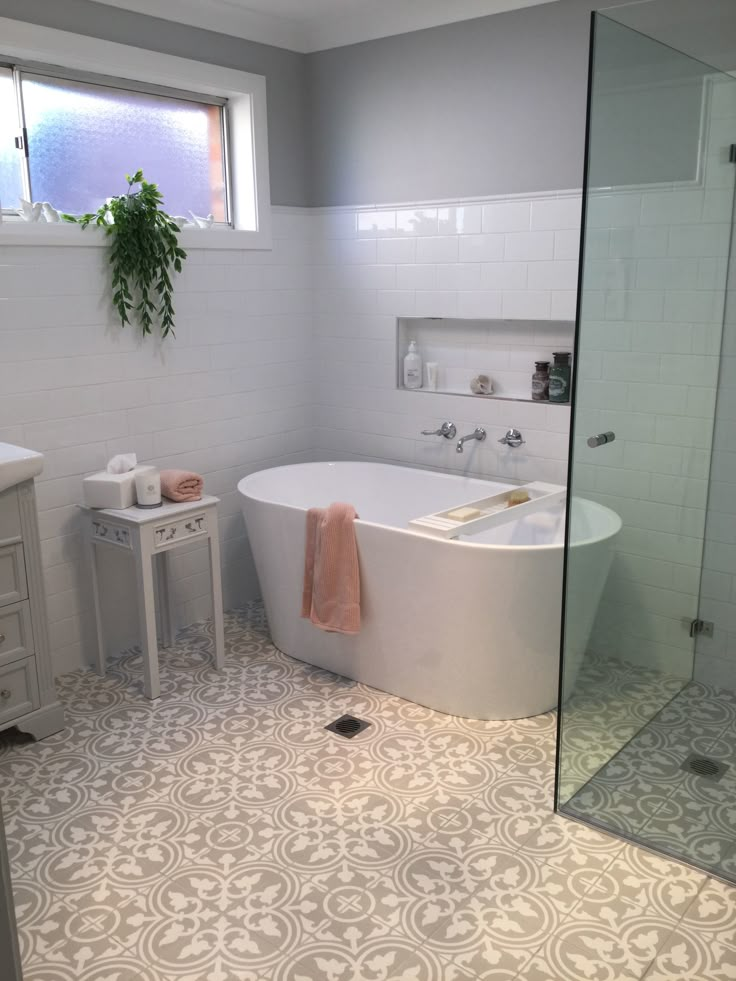Renovating a small bathroom can significantly enhance a home’s functionality and appeal, but understanding the financial outlay is crucial for a successful project. While small in size, these renovations can still involve a range of expenses, from materials to labor and unexpected issues. This guide aims to provide homeowners with a comprehensive overview of what to expect regarding costs for a small bathroom renovation, helping them budget effectively and avoid common financial pitfalls.
Average Cost Range for Small Bathroom Renovations
The cost of renovating a small bathroom can vary widely depending on the scope of work, the quality of materials chosen, and whether you opt for DIY elements or professional services. Generally, a small bathroom renovation can range from $5,000 to $15,000, with mid-range projects often falling between $7,000 and $12,000. High-end finishes or extensive reconfigurations can push costs higher.
Key Cost Components
To effectively budget for your small bathroom renovations, it’s essential to understand the primary cost components:
- Demolition and Debris Removal: This initial phase involves tearing out old fixtures, tiles, and potentially parts of walls or flooring. Costs depend on the extent of demolition and disposal fees for debris. Expect to budget $500 – $1,500 for this.
- Plumbing: This is often a significant cost. If you keep the existing layout, plumbing costs will be lower (replacing fixtures on existing lines). However, moving the toilet, shower, or sink drains and supply lines can dramatically increase expenses due to the labor and materials involved in re-routing pipes.
- Minor (fixture replacement): $500 – $1,500
- Major (layout changes): $2,000 – $5,000+
- Electrical: Upgrading lighting, adding new outlets, or installing exhaust fans will require electrical work. Costs depend on the complexity and the need for new wiring or circuit upgrades. Budget $300 – $1,000.
- Flooring: The choice of flooring material heavily influences cost.
- Vinyl/Laminate: $3 – $7 per square foot (material + installation)
- Ceramic/Porcelain Tile: $5 – $15 per square foot (material + installation)
- Natural Stone: $10 – $30+ per square foot (material + installation)
- Walls (Drywall, Painting, Tiling):
- Drywall Repair/Installation: If walls are damaged or moved, new drywall is needed.
- Painting: A simple repaint can cost $100 – $500 (DIY saves labor).
- Wall Tiles: Similar to flooring, costs vary by material. Tiling a shower enclosure or accent wall adds to the expense.
- Fixtures:
- Vanity/Sink: $300 – $2,000+ (stock vs. custom, floating vs. freestanding)
- Toilet: $150 – $500+ (standard vs. wall-hung, low-flow)
- Shower/Bathtub:
- Shower Kit (pre-fab): $500 – $2,000
- Tiled Shower: $1,500 – $5,000+ (materials + labor)
- Bathtub: $300 – $1,500+ (material, installation)
- Faucets & Showerheads: $100 – $500+ per fixture
- Lighting: Fixtures, installation. $100 – $500+ per fixture.
- Ventilation: Exhaust fan installation/upgrade. $150 – $500+.
Potential Hidden Costs to Anticipate
Even with careful planning, unexpected issues can arise. It’s wise to set aside a contingency fund of 10-20% of your total budget.
- Mold or Water Damage: Discovering mold or rot behind walls or under flooring can significantly increase repair costs.
- Subfloor Issues: Damaged or uneven subfloors may need repair or replacement before new flooring can be laid.
- Code Upgrades: Older homes may require electrical or plumbing upgrades to meet current building codes, even if not initially planned.
- Permits: While often included in quotes, ensure you know the cost and who is responsible for obtaining them.
Tips for Budgeting Effectively
- Prioritize: Decide what’s essential vs. what’s a luxury. Focus your budget on the most impactful changes first.
- Get Multiple Quotes: Obtain detailed, itemized quotes from at least three reputable contractors.
- Consider DIY: If you have the skills, tackling tasks like painting, demolition, or installing accessories can save on labor costs.
- Choose Stock vs. Custom: Pre-fabricated vanities, shower kits, and standard fixtures are much more affordable than custom-built options.
- Smart Material Choices: Opt for cost-effective materials like large-format ceramic tiles, vinyl flooring, or specialized paint for existing surfaces.
By meticulously planning, understanding potential costs, and being prepared for unforeseen issues, homeowners can successfully renovate their small bathroom without breaking the bank, creating a beautiful and functional space within their financial means.

